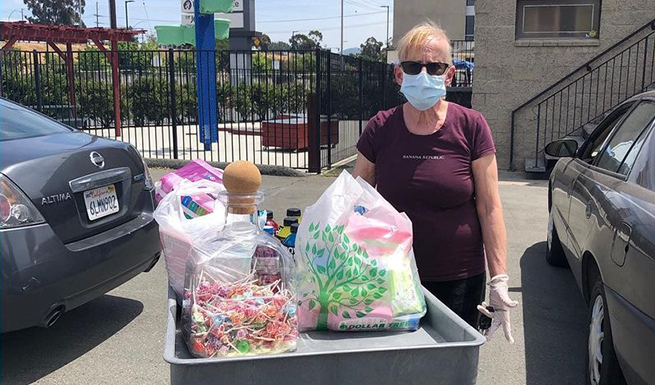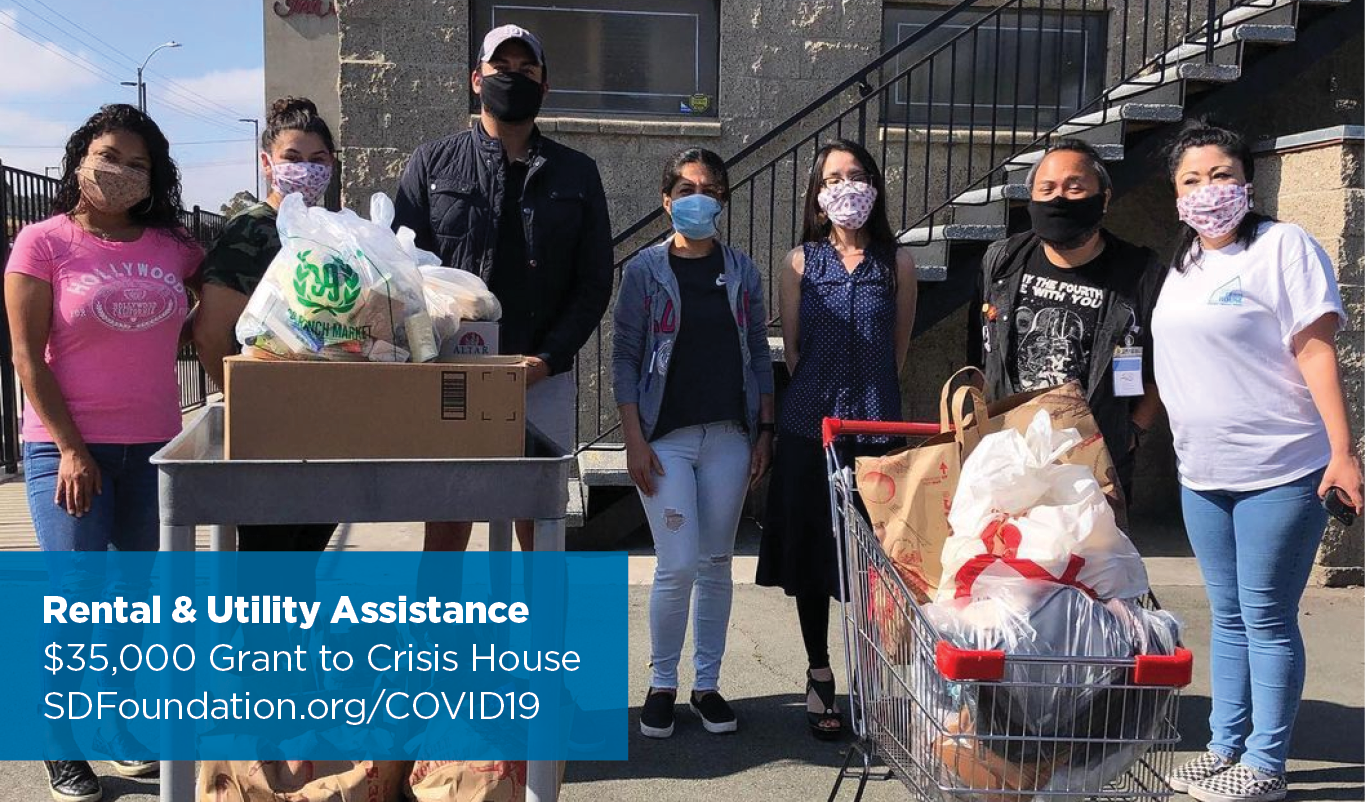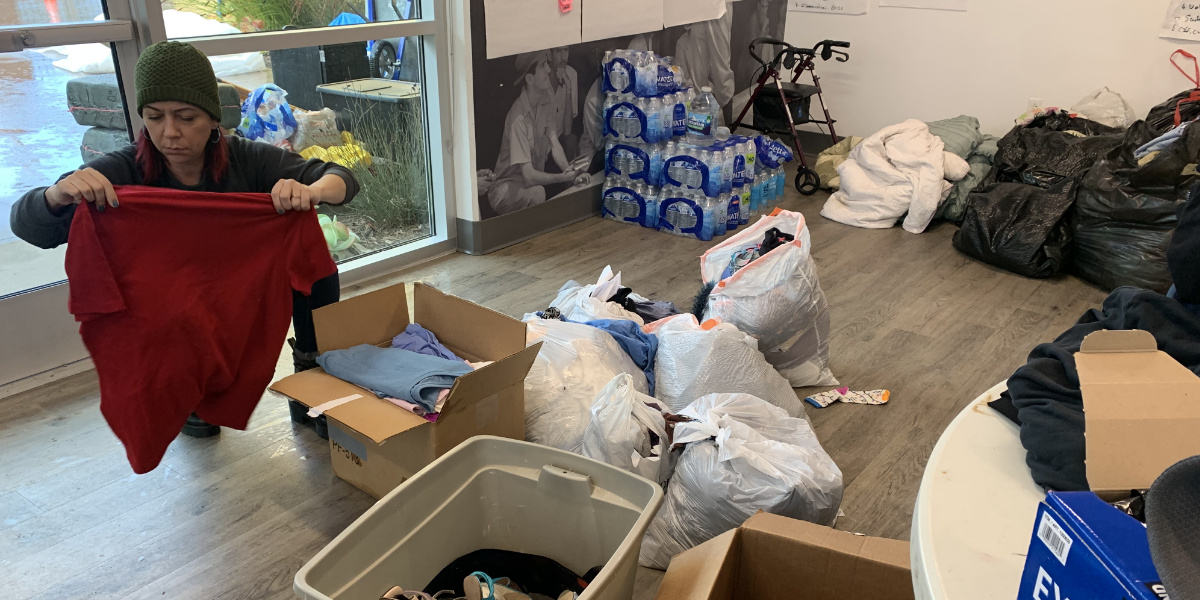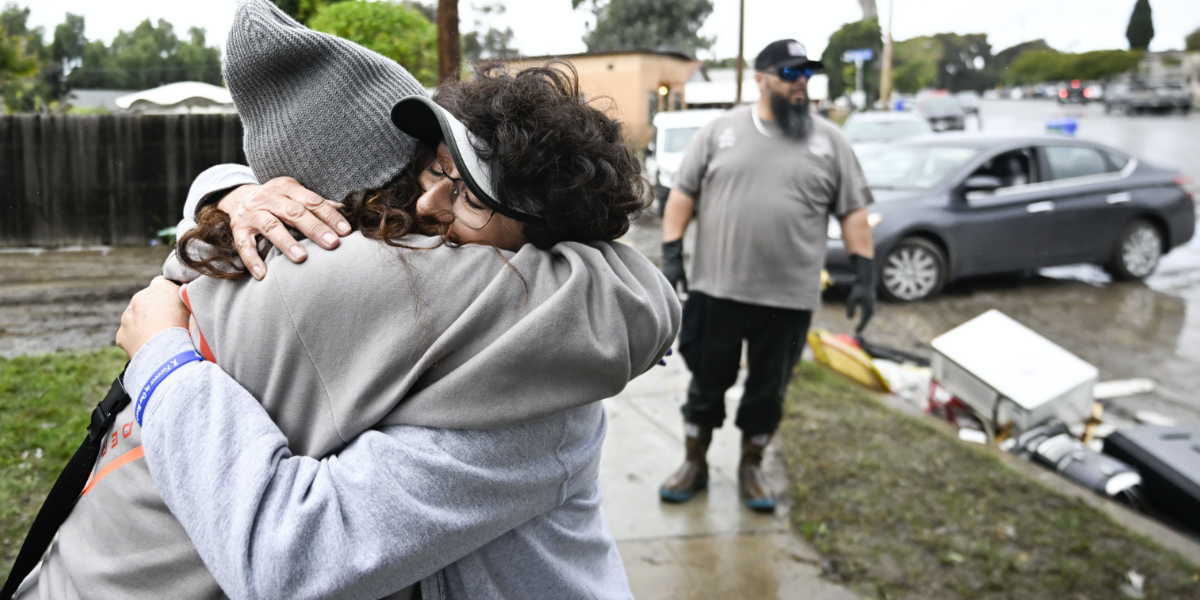Before the pandemic, Amy* of Crisis House was slowly, but finally, on her way to becoming self-sufficient.
Fleeing domestic violence, Amy traveled to San Diego from Florida with nothing but her daughters and a small amount of savings. She had been staying in hotels, moving from place to place trying to make ends meet for her family.
2-1-1 San Diego referred Amy to Crisis House, a local nonprofit that provides a comprehensive continuum of housing for women, children and men who are survivors of domestic violence. After completing an assessment and becoming an established client, Crisis House helped Amy get a job that allowed her to support her family and purchase a car. She was excelling at her company and even got a promotion shortly after she was hired.
“Everything was happening for her… She was so excited,” shared Francisca Alcaide, Program Manager for Domestic Violence Housing at Crisis House.
Suddenly, COVID-19 hit. Due to down-sizing as a result of the pandemic, Amy lost her job and her car, and she watched her savings deplete. She was nearing the end of her rental assistance, and abruptly found herself back at the beginning of her journey to self-sufficiency.
“Because of The San Diego Foundation grant, we were able to keep her afloat,” Francisca shared.
Our San Diego COVID-19 Community Response Fund provided Crisis House with a $35,000 grant to support rental and utility assistance for their clients as well as basic needs.
Navigating Re-Traumatization
Crisis House serves approximately 175 families per year through their comprehensive continuum of housing. Their services include emergency housing, transitional housing, rapid re-housing and prevention services for survivors of domestic violence and homeless families and individuals, as well as financial assistance, ranging from rent and utilities to car repairs and uniforms for work.
“Whatever is going to help people get housed and stay housed,” says Mary Case, the Executive Director at Crisis House.
Francisca shared that one client said, “If it wasn’t for Crisis House and the additional assistance, I think my family would definitely be out on the street, or living with a family member, or back to square one.”
While Crisis House’s services have not changed since the pandemic, they are certainly feeling the increase in need. Times of San Diego reported that in San Diego County, authorities received 8,495 reports of domestic violence incidents in the first six months of 2020, compared to 8,235 in the first half of 2019, according to the San Diego Association of Governments (SANDAG).
“They’re already dealing with trauma – this is really a re-traumatization,” Mary shared regarding the compounded fear that survivors are facing.
“It was just incredible that we were able to obtain the grant so that we could provide additional services to the families that needed it,” Francisca said.
Resources from the COVID-19 Community Response Fund helped 23 to 25 families by supporting their basic needs and giving them a chance to develop a plan for how to proceed and break the cycle of abuse.
Persisting Needs

Crisis House serves a vital role in the community as the first steppingstone for survivors by guiding them, redirecting them and giving them support they need to move forward and live full, self-sufficient lives. However, shelter, food, financial assistance and other vital needs continue to increase and significantly impact the healing and growth processes for Crisis House’s survivors.
“They’re such powerful women,” Francisca said of the survivors that have found the strength to leave their abusive situations and seek help through Crisis House, and particularly those that have remained resilient as they navigate the adverse impacts of the pandemic.
To learn more about Crisis House and ways you can support their life-changing work, visit their website.
Also, consider a contribution to our COVID-19 Community Response Fund, through which we distribute funds on a rolling basis to local nonprofits like Crisis House that are mobilizing to meet the most emergent needs in our region.
*Name has been changed to protect the individual’s identity.




